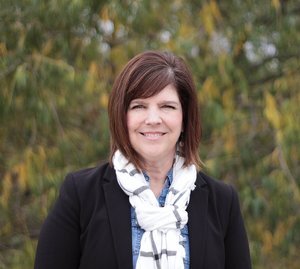My son has a fanatical love for the game of UNO—or more accurately a fanatical love for making me squeal when he has managed to play repeated Draw Fours, Reverses, and Skips all at the end of the round—causing me to lose the game. And more than once, each of us has mistaken a 9 for a 6 when it was our turn to strategically end the game in our own favor. We know to look for the line below the 6, but for some reason, when the card is sitting upside down in our hands, in a moment of haste, we see the number as its opposite identity. After all, a 9 is a 6 upside down, right?
It's not that different in life—sometimes we have attacked a problem in our life with vigor. We struggle with depression, anxiety, a difficult relationship, or addiction and we pull out all of our finely-tuned strategies to conquer it and leave it behind. After all, we have successfully fought this monster before, so why should this time be any different? But for some reason, this time the problem doesn't budge. In fact, if anything the problem may seem to grow and deepen until we may begin to wonder if we are actually the problem, and not the problem, itself.
It is times like these that we can benefit from looking at the problem from a different perspective. Like the cartoon I saw recently which showed a boat approaching an island, its occupant enthusiastically shouting “Land!” while the islander frantically shouted, “Boat!” Sometimes the problem may actually be the solution to a bigger problem we've been trying to solve for years. Depression may actually be the catalyst that points us to the God alone who will never leave us. Or anxiety may be the tool that finally teaches us to let go of control so that we can find peace.
Or there is always a possibility that the problem truly is a beast that needs to be slain but that we don't have the power to fight it alone. We need new tools or maybe just someone to sit with us in our pain, asking us questions, as we process our thoughts and feelings aloud. We may need someone to tell us that they are with us while we are suffering—giving us the courage to get back up and try again. Or, perhaps each of the problems alone would be easily defeated, but because they have begun to intertwine with each other they now seem to sustain each other and create confusion as to which problem is actually at the root of the others. And, as is often the case, it is a mixture of all of the above.
If this describes you, there are some things that you can do to get a bird’s-eye view of the problems that are overwhelming you. Within the next week, find some time alone to make a list of the things that are bothering you. Look to see if there are any patterns to the items on the list and connect them with lines or arrows. Now take that list and put the things that are inside your control in a circle on a new piece of paper. Draw a square around that and put the things on your list that are outside of your control in the square. What you see inside the circle is your starting point to make some changes. Ask yourself—'Do I need any extra tools or resources to address the things inside the circle? Am I still feeling overwhelmed with finding a starting point?’ If so, you might choose to share your list with someone close to you that you trust to see what patterns he/she observes.
Sometimes, however, you may need an objective eye (outside of your family/friends) to help you process these thoughts. If so, please give us a call. At The Fountains Counseling Center, our counselors are familiar with the complexity of these patterns and are trained to help you make these discoveries for yourself. They will sit with you, listen to you, encourage you, and help you figure out what next steps are needed to get unstuck. Who knows?... it could be that the next card you draw will be the Reverse card that changes the entire direction of the game!
To book a session Click Here or call 682-207-4824.
Author
Jennifer Cranford, MA, LPC Associate
Supervised by J. Scott Floyd, Ph.D, LPC-S









